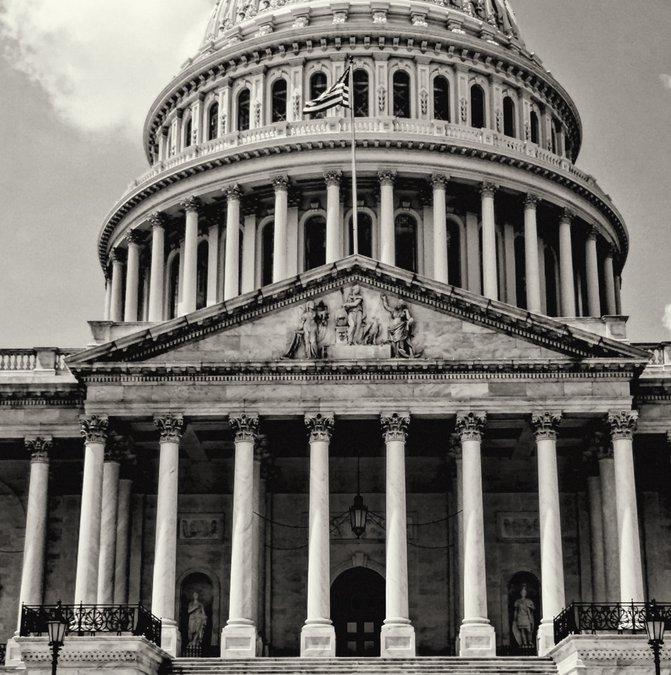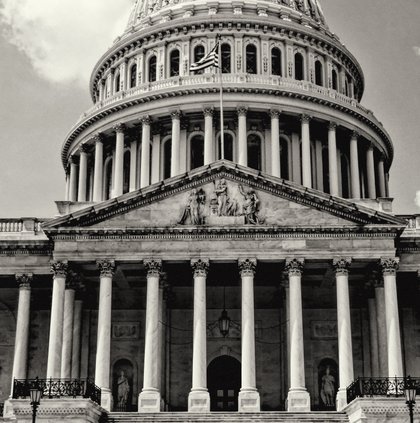WASHINGTON — Shortly after its narrow passage in the House, one local congressman touted the American Rescue Plan Act as what would be “landmark, life-saving legislation” to provide further COVID-19 relief.
The act is a $1.9 trillion economic stimulus package that was proposed by President Joe Biden to help speed up the country’s recovery efforts amid the pandemic. Members of the House voted 219-209 on Feb. 27 to narrowly approve the bill. All but two Democrats voted for the bill and all Republicans voted against the bill. The Senate is expected to vote on the bill later this week.
U.S. Rep. Hank Johnson, D-Lithonia, who represents Georgia’s fourth district including portions of Newton County, cast his vote in favor of the bill.
“Georgia's families’ lives and livelihoods have been devastated by the coronavirus pandemic and economic crisis,” Johnson said in a statement following the House vote. “These hard-working Americans cannot afford further delay, which is why I proudly joined my colleagues today to pass President Biden’s bold, strategic relief package that delivers the long-overdue resources needed to meet the needs of Georgia's communities and families across the country. With tens of millions of Americans infected, more than half a million lives lost, millions more unemployed and food and housing insecure, the time for action is now, and we will not be deterred from this critical mission.”
If approved by the Senate, the bill would provide Georgia and its state agencies approximately $4.7 billion, and its 159 counties and cities would share an additional $3.6 billion, Johnson said. DeKalb, Gwinnett, Rockdale and Newton counties — all represented, in part, by Johnson — would split more than $358 million, and the cities within the district would receive an additional $60 million in funding to help struggling families and businesses.
Biden’s bill would also uptick the national COVID-19 vaccination program, increase the amount of testing and tracing, and address shortages in personal protective equipment and other critical supplies.
Nearly $130 billion would be invested to help safely re-open all schools and make up for lost time in the classroom.
The package would include checks of $1,400 per person, direct housing and nutrition assistance, health care and child care assistance.
The bill included a provision to increase the federal minimum wage to $15 per hour. However, the day before the full House vote, Senate Parliamentarian Elizabeth MacDonough ruled that the proposal to add the minimum wage provision was not compatible with the Senate's budget reconciliation process. House Speaker Nancy Pelosi stated later that the House would still approve the bill with the minimum wage raise, although it will have to be amended out in the final Senate bill to comply with the ruling. If not amended out, Vice President Kamala Harris would have to overrule the Parliamentarian in passing the bill.
Georgia Gov. Brian Kemp publicly stated his disapproval of the proposed legislation, calling it a “slap in the face to hard-working Georgians” in an editorial published by Fox News on Monday.
The relief package, as it’s currently written, would divide $195 billion among state governments based on the number of unemployed people in each state. The formula used in previous COVID-19 packages distributed relief based on total population.
Kemp estimated this formula would leave Georgia with $1.3 billion less in relief than if allocations were based on a state’s population.
“The COVID-19 relief package, as currently written, is a slap in the face to hardworking Georgians, small businesses and countless families who struggled to make ends meet throughout the pandemic,” the governor wrote. “Congress should take action immediately by changing the bill to level the playing field for all states.”
Kemp called on recently seated U.S. Sens. Jon Ossoff and Raphael Warnock to “use their considerable influence” in the Democrat-controlled Congress to revise the relief package.
Both offices of Ossoff and Warnock confirmed the senators intend to vote in favor of the new relief package, the Capitol Beat News Service reported Tuesday.





